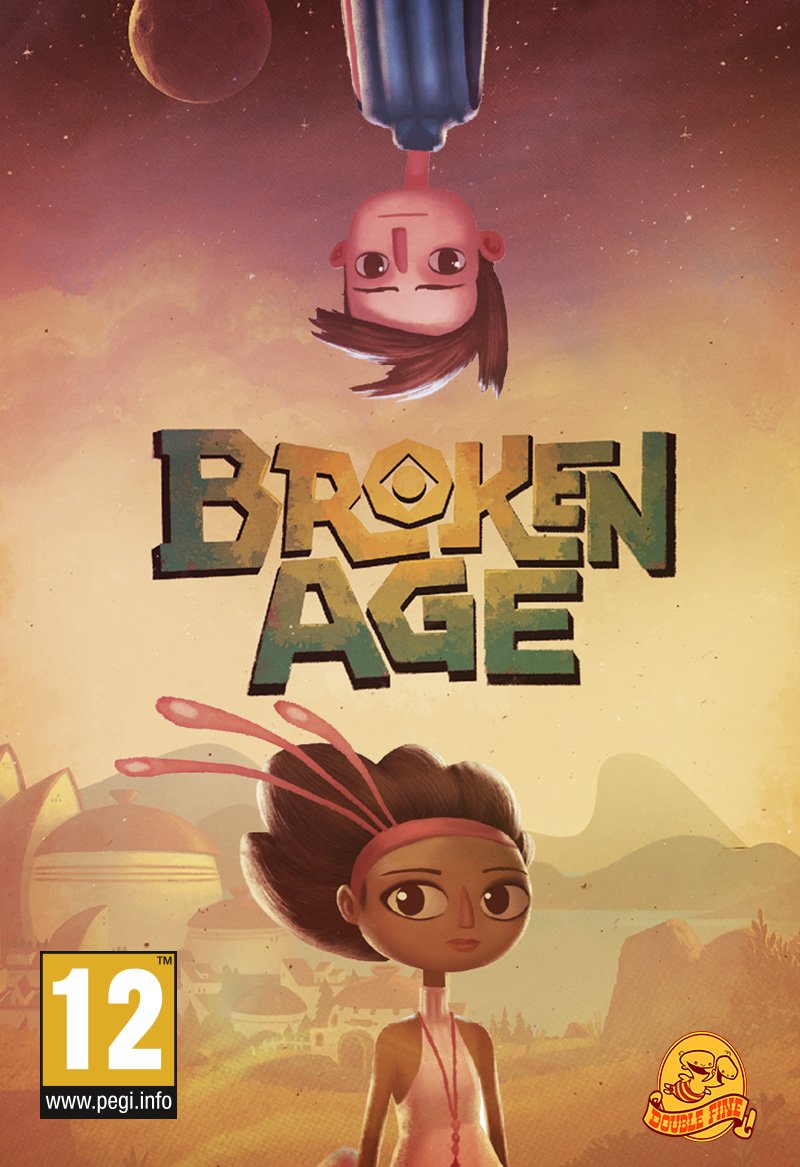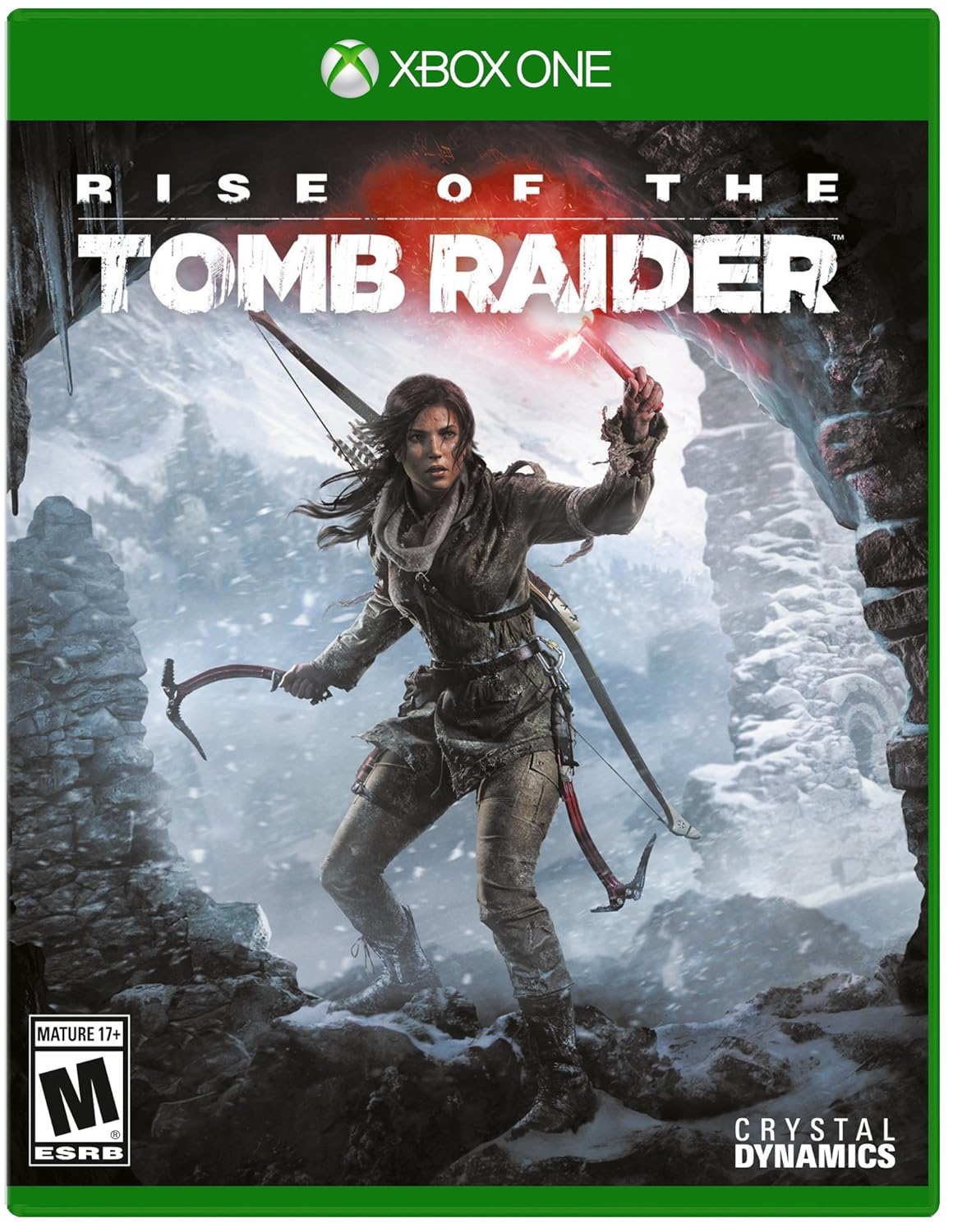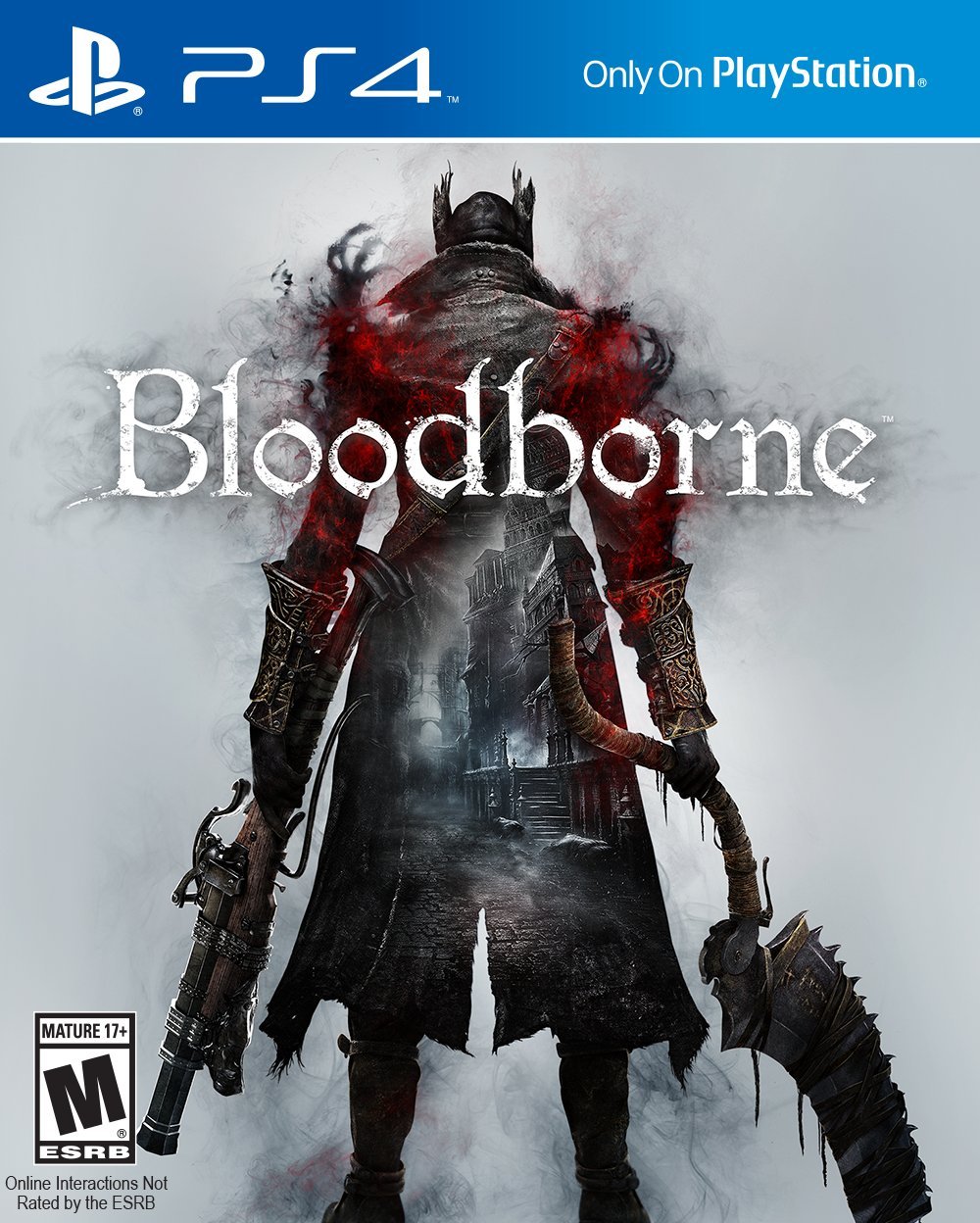There's some big games that came out last fall that I wanted to play and didn't get a chance to. Still, there's a lot of great stuff on this list, including things you don't need to be a hardcore gamer to get into.
Best of 2015
10. Broken Age (Multi)

After all the controversy over its development (for the record, I think Tim Schafer probably mismanaged the scope of the project after the Kickstarter greatly exceeded its initial funding goal, but it would have been worse if he kept it the same and pocketed the extra money), Broken Age ended up being what was promised: a traditional point and click adventure game. The puzzles in the first half were maybe a bit too simple, and the ones in the second half probably skewed too far the other way, but what people really remember about these games are the characters and the world they inhabit, and I think the game succeeded there. It's funny and sweet, and I think I got what we paid for.
9. Her Story (Multi)

Her Story is both very different from other video games and very much a video game. In the game, you have access to a database of videos taken from a series of interviews of one woman from a murder investigation in 1994, split into chunks of anywhere from 2 seconds to a couple minutes, and viewable by searching for words spoken in the clips, with only the first five chronologically available at one time. Ignoring that the system only makes sense as a way to obscure important information, the game effectively gives you the experience of investigating the murder yourself, watching the videos, picking up on key phrases, and finding a way to get to the meaty truths hidden in the final interview. The actual plot can be interpreted multiple ways, all of which are wackier than you might initially suspect, but the feeling of piecing things together is unique and rewarding. I played it by myself, but I can see it being fun with a group as well.
8. The Beginner's Guide (PC)

This works very well as a companion to Davey Wreden's first game, The Stanley Parable. While that was about playing games, Guide is about making them, although it's broad enough to apply to any kind of creative endeavor. It lacks the humor and playfulness of Parable, taking a more introspective approach, but it still keeps you intrigued for its duration as it plays with your expectations and dives into the insecurities and worries that a lot of people deal with. If you hate games where you do nothing but walk around, you'll want to avoid it, but I think a lot of people who don't play many games could enjoy it more than they'd expect.
7. Lara Croft Go (Multi)

Last year Square Enix put out Hitman Go, a clever phone game that translated the core concepts of the Hitman series into a turn-based game on a grid. Lara Croft Go does the same thing with Tomb Raider, but to much greater effect. The puzzles (until the bonus levels after the normal ending) are in the perfect range between tough enough to make you feel smart and easy enough that you never get stumped for too long. The visual style is neat, and the hidden objects you can find to unlock new costumes are a nice extra brain tickler to keep you focused. I played it enough to where I was seeing the game all around me when I wasn't playing it, which always annoys me, but it's hard to get mad at the game for that.
6. Axiom Verge (Multi)

I played Super Metroid last year, finally learning why it's always brought up in best-game-of-all-time discussions and seeing how it influenced so many exploration-focused action platformers over the years. Axiom Verge is very obviously heavily influenced by that game, but luckily avoids copying it too heavily, coming up with its own ideas for weapons and tools so the gameplay at least always feels distinct. The retro-styled visuals and music compliment each other nicely, and while I didn't get a whole lot out of the sci-fi story, it did a decent job of tying the whole experience together into a cohesive whole. DEMON, ATHETOS SAY, KILL
5. Rise of the Tomb Raider (XBO)

I haven't actually finished this game yet, but I feel confident in placing it here. As a follow-up to the reboot from a couple years ago, it expands on what people really liked, the exploration and survival aspects, and pulls back a bit on the combat, which I actually enjoyed, but I always welcome the shift in focus. The story works well enough to pull you into its world and justify why Lara puts herself into another dangerous situation, and the structure of the game lets you play it at your own place. I'm really enjoying finding and clearing the optional tombs, upgrading my gear, and finding all the little bits of history scattered around. Also the game is extremely gorgeous, which is always nice.
4. Undertale (PC)

Undertale is an old-school RPG for the Tumblr crowd, and if that's a turn-off for you, I understand. I still thought it was one of the best narrative experiences in games last year. The gameplay is pretty basic, as you solve simple puzzles and engage in a combat system which never gets terribly deep but lets you talk with your foes and let them go instead of just whacking them to death. The game parts are functional enough to get you to the story, where Undertale shines. It's a genuinely funny game, and it uses humor to get you to like its characters. It then uses your affection for the characters to build to a couple conclusions which are much more emotionally effective than they would be otherwise. I recommend playing through without killing anyone, and then loading your save and getting the pacifist ending, as both conclusions have their own things to say, their own surprises, and their own memorable moments. If you want to go back for the genocide ending after that, that's on you.
3. Metal Gear Solid V: The Phantom Pain (Multi)

As a Metal Gear game in general, and specifically as Hideo Kojima's farewell to the series he created, The Phantom Pain is a big disappointment in several ways. Luckily, actually playing the game itself is an incredible experience. Metal Gear has long had a reputation for being idiosyncratic and obscure, but by putting you in an open world, pulling back on the familiar distractions, and honing everything to near-perfection, Kojima and his team managed to craft perhaps the finest-playing stealth game ever made. The way all the systems work together with your different abilities and the complex, smart-but-not-too-smart AI of the enemies creates an endless supply of unique, memorable moments, whether you pull off the perfect, unseen approach and infiltration of an enemy base, or screw up and have to Rambo your way through. The different buddy characters provide an added layer of strategy and possibility, and the plethora of side-ops and optional objectives mean there's as much game as you want there to be. I could talk more about my complaints, but I'd rather focus on the positive: playing The Phantom Pain is awesome.
2. Bloodborne (PS4)

Compared to the Souls games, Bloodborne clearly has a more narrow focus. Shields aren't really a viable option, and neither are projectiles or magic. Having such a specific aesthetic, there isn't exactly a ton of environmental variation. If you love the Souls games because of the variety of possible character builds and far-ranging level design, I can understand disappointment in Bloodborne. If you focus on what Bloodborne is rather than what it isn't though, you can see how brilliant it is. The art direction is great, creating an incredible atmosphere, and finding enough possibilities within the space of "horrific Victorian hellscape" that you can tell all the different areas and their purposes within the world apart. The combat is fantastic, with a fun variety of exotic weapons, tough enemies, and a fast pace that keeps you on your toes and your heart racing. The story is vague but intriguing, with plenty of images you'll remember even if you don't exactly understand what they mean. As a variation on the classic Souls experience as I understand it, I think it's complimentary in a way that only makes the franchise richer.
1. The Witcher 3: Wild Hunt (Multi)

With The Witcher 3, I think CD Projekt Red's results finally met their ambitions. Taking place in a massive open world, there's more love and attention to detail per square mile than I think most games with similar scales even begin to approach. They've been building their setting and characters for three games, and the payoff seems pretty clear, as multiple storylines come to fruition and ultimately, satisfying conclusions. Much has been said about how good the side quests are, and I think that's extremely important. In a lot of games you can tell where the focus and attention went in the main story, and the rest of the game is just filler to make you think the experience was huge and meaty. But when every side job you find is at least fleshed out enough to fit your understanding of the world, and sometimes is as interesting as anything you'd see on the critical path in another game, you feel like the whole is greater than the sum of its parts. People have complaints about the combat, but I had enough fun with it to carry me through 90 of the most enjoyable hours I spent with games in 2015.
Delayed Entry
This is the best game that wasn't released in 2015 but I didn't play until then.
Dark Souls (Multi)
Months of prodding from a friend finally got me to buckle down and play Dark Souls, a game I was sure was great but that I would struggle to like. That turned out to not really be the case, as the solid-as-a-rock combat system, helpful online community, and wonderful, interconnected level design helped me get over the humps of significant difficulty, obscure systems, and the occasional loss of several thousand souls. There were a few many sub-par areas for me to praise it as truly one of the best games ever made, but I can certainly see why others feel that way. For me, being merely great ain't half bad.
AAAAAGGGHHHH
16 years ago


































No comments:
Post a Comment